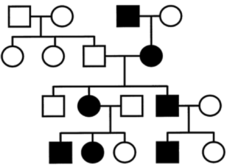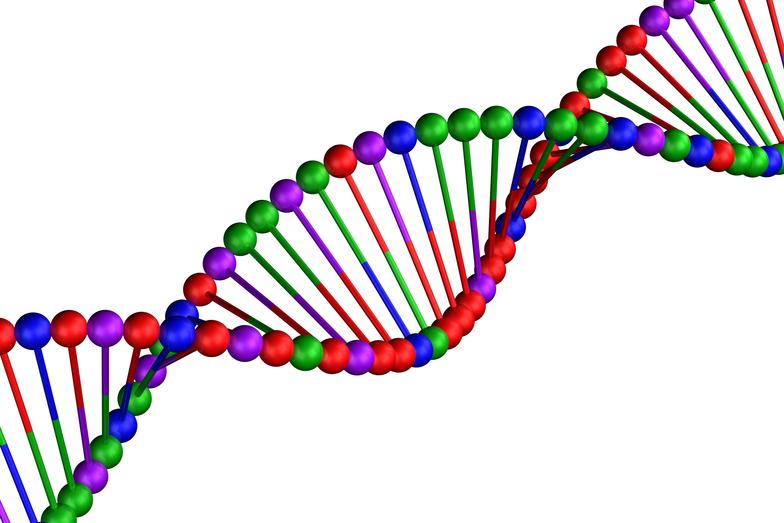Genetic Counseling 101
With many rare diseases there is often an underlying genetic cause. There is a whole field dedicated to helping patients and families navigate and investigate potential genetic causes of disease; it is called genetic counseling. This page serves as introduction to this field, the medical professionals who provide genetic counseling services, and genetic disease itself. If at the end you find yourself interested in joining the field, we've included some information on how to become a genetic counselor.
Who are genetic counselors?
A genetic counselor is a master’s level medical professional who specializes in medical genetics and psychosocial counseling. They evaluate families’ risks for inherited medical conditions and help these families to understand the implications of those risks. Individuals who are referred for genetic counseling include those who are affected with a genetic condition, suspected of being affected, family members of affected individuals, and pregnant women with a positive family history.
An initial session with a genetic counselor includes discussing the reason for referral to genetics clinic, taking a detailed family history (usually documenting on a family tree called a pedigree), and exploring any appropriate genetic testing options with patients. You can see a genetic counselor even if genetic testing is not available for your condition.
Example of a Pedigree
The benefits to testing include relief from uncertainty and providing information to help manage healthcare. Unnecessary treatments or screening can be avoided based on negative results and positive results can guide patients to appropriate prevention, monitoring, and treatment. Genetic test results can also allow family members to make informed decisions regarding family planning.
Genetic testing is always optional. Some people decide not to pursue testing because of the emotional, social, and financial consequences. Test results may lead to anxiety (living with the knowledge of having increased risk for a disease), anger (receiving a diagnosis with serious medical consequences), or guilt (testing negative for a disease when a family member is positive). Since genetic issues are shared among family members, testing can cause strain if results from one person also reveal information about a family member who does not wish to know this information. Patients may also encounter genetic discrimination in long-term care insurance, disability insurance, or life insurance and be denied coverage or have increased premiums if they have a positive test result.
If you do proceed with testing, genetic counselors help you navigate the entire process. They advocate with insurance companies for testing coverage, explain test results, and provide continued emotional support. Genetic counselors also work to connect patients with appropriate resources both within health care and in social services (early intervention, support groups, advocacy organizations, etc.).
You will often find genetic counselors working in clinics or hospitals alongside doctors in specialty settings like prenatal, cancer, pediatrics, cardiology, metabolism, and neurology. Some genetic counselors are involved in research, working with study participants to gather information that can help to develop treatments and diagnostic tools for people with genetic disease.
What is a genetic disease?
A genetic condition is the result of a change (sometimes called a variant) in a person’s DNA. DNA can be thought of as the instruction manual for all of the body’s functions. A variant in DNA is like a spelling mistake that alters the meaning of some of the instructions so that a particular bodily process can not be carried out properly. Sometimes these DNA variants are inherited from one generation to the next or sometimes a person is the first one in their family with the variant. Our understanding of genetic disease has grown over time so it is possible that in the past family members from previous generations may have had a genetic disease that went undiagnosed.
Helpful Links
National Society of Genetic Counselors (NSGC)’s patient-centered website. NSGC is the main governing body for genetic counselors in the US and Canada.
National Society of Genetic Counselors (NSGC)’s directory to help the public connect with an appropriate genetic counselor
National Institutes of Health (NIH) websites for patient-centered genetics information with comprehensive, disease-specific pages
Common Misconceptions About Genetic Counseling
Myth: The purpose of genetic counseling is to create “designer babies”
Fact: Genetic counselors will not tell you what reproductive decisions to make and do not genetically modify babies. They do make you aware of reproductive options available to you and offer support to help you make the best decision for you and your family .
Myth: Genetic counselors will force patients into testing
Fact: Genetic testing is always optional! If testing could be considered for you or your child, a genetic counselor will discuss the benefits, risks, and limitations of testing and then help you to make a decision on if testing is right for you.
Myth: Genetic counselors provide in-depth therapy
Fact: Genetic counselors certainly have the skills to discuss the emotional issues that can surround a genetic diagnosis or genetic testing but they are not licensed therapists or psychologists. They are available to listen to your story and concerns and help you through what could potentially be a difficult time.
Myth: Genetic testing is painful and invasive
Fact: Most genetic testing involves a small blood draw or in some cases can even be done with a sample of your saliva. Phlebotomists who take the blood sample are trained to minimize pain as much as possible. Your health care team does not want to see you in pain anymore that you do!
Myth: A genetic counselor is a doctor or nurse
Fact: Genetic counselors receive specialized training in human genetics and counseling through a master’s degree program. They do not have to go to medical school or nursing school to get their degree. However, they do have to pass a board exam administered by the American Board of Genetic Counseling in order to be certified to do their work and complete continuing education to keep this certification. While they work closely with doctors and nurses as a part of the health care team, their title is different and they fill a specialized role.
Myth: Patients will lose health insurance coverage if they have genetic testing
Fact: The Genetic Information Nondiscrimination Act (GINA) of 2008 is a federal law that prevents discrimination in the workplace and by health insurance companies based on an individual’s genetic test results. However, this law does not protect against discrimination by life insurance, long-term care insurance, or disability insurance companies and the protections that GINA offers may be different if you are in the military.
How do I become a genetic counselor?
Many genetic counselors are people with personal connections to rare disease. If you are interested in becoming a genetic counselor you will first need a bachelor’s degree. Most people enter a genetic counseling training program with a degree in the life sciences or psychology but as long as you have taken the prerequisite classes, you can apply to a training program with any major. The requirements for every program vary but in general experiences that can help your application include shadowing genetic counselors, volunteering/working with people with special needs, and providing counseling on a crisis hotline. Some programs also expect you to take the GRE (Graduate Record Exam). For more information about becoming a genetic counselor and the different genetic counseling training programs across the US and Canada, please visit the links below.
◯ = unaffected female ⬤ = affected female
⭖ = unaffected male ◼ = affected male
RNE is pleased to present an overview of genetic counseling to our members. Many are not aware of just what a genetic counselor's role is; they offer a service valuable both, to the patient/family and to medical teams. RNE recognizes this and works to spread this awareness in hopes all find the support they need to live and work with genetic diseases..
We extend gratitude to Allie White, our 2017 fall intern from the Brandeis University's Genetic Counseling Program who organized the material highlighted on this page.


